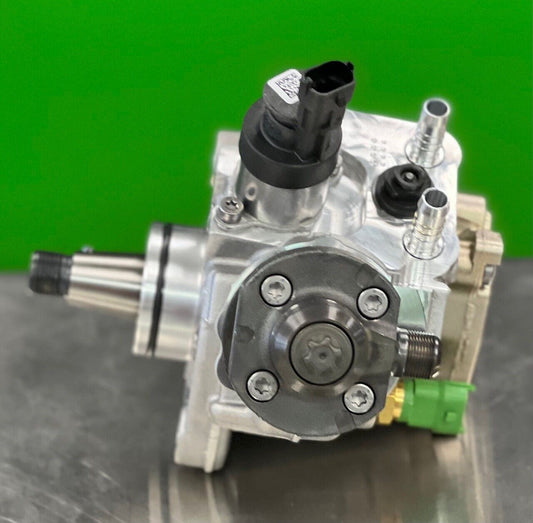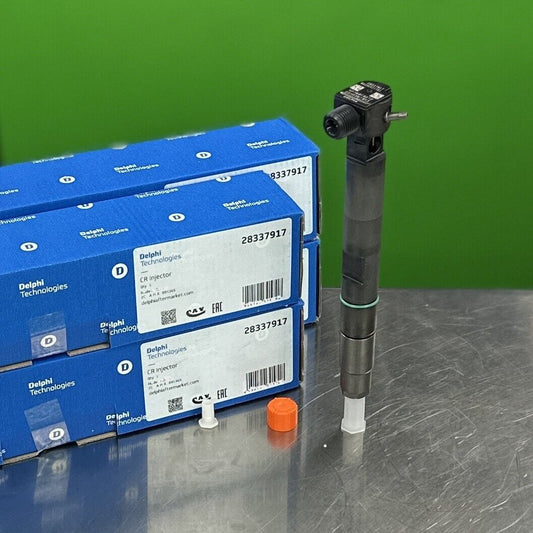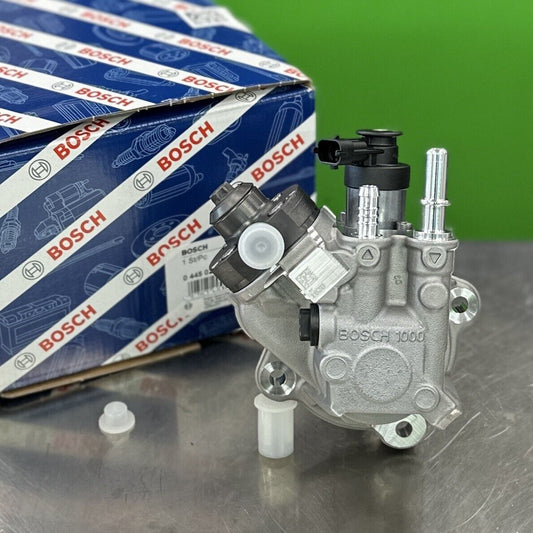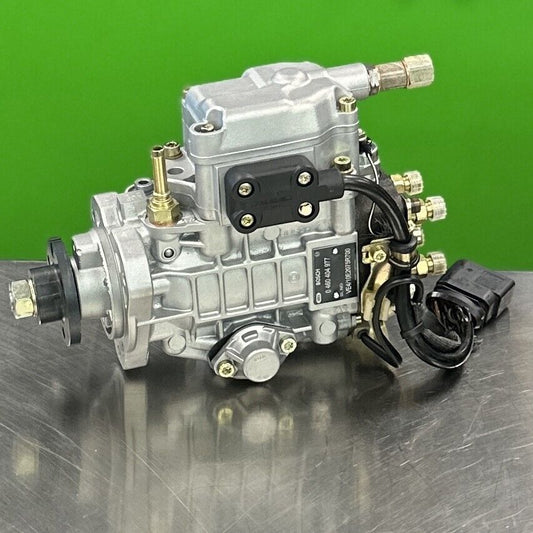The Future of Fuel Injection: What to Expect
As we delve into the future of fuel injection technology, the landscape of automotive efficiency and performance is primed for a revolution. Imagine a world where precision meets power, where every drop of fuel ignites a symphony of controlled explosions propelling vehicles forward with unparalleled efficiency. The future of fuel injection holds the promise of a dynamic and sustainable driving experience, where innovation and environmental consciousness converge.
Picture this: Electronic Fuel Injection systems, the heart of modern engines, are undergoing a metamorphosis of innovation. The latest advancements are not just incremental improvements but quantum leaps in fuel delivery precision and engine responsiveness. With each ignition, these systems are orchestrating a ballet of fuel and air, optimizing combustion to unleash a surge of power that defies conventional limits.
Amidst growing concerns for the environment, sustainable fuel injection solutions are emerging as the champions of eco-friendly transportation. Biofuels and hydrogen fuel cells are not merely alternatives but the vanguards of a green revolution in the automotive industry. These technologies are reshaping the future of transportation, offering a glimpse into a world where vehicles harmonize with nature, emitting whispers of progress instead of clouds of exhaust.
Artificial Intelligence, once confined to the realm of science fiction, is now a driving force behind the optimization of fuel injection processes. The integration of AI in fuel systems is not just a trend but a paradigm shift towards enhanced fuel efficiency and reduced emissions. Imagine a future where algorithms fine-tune every injection, where machines learn to anticipate the needs of engines, creating a symphony of efficiency that rivals the most skilled conductor.
Even in the realm of electric vehicles, fuel injection technology is carving a path towards innovation. Hybrid and electric vehicles are no longer bound by the limitations of traditional engines but are embracing fuel injection as a means to revolutionize energy management. The marriage of electric power and fuel injection is not a clash of technologies but a harmonious duet, where each complements the other to create a driving experience that is both electrifying and efficient.
1. Electronic Fuel Injection Innovations
Electronic Fuel Injection (EFI) systems have revolutionized the way fuel is delivered to engines, paving the way for enhanced efficiency and performance in modern vehicles. The latest innovations in electronic fuel injection technology are taking precision and responsiveness to new heights, offering drivers a smoother and more dynamic driving experience.
One of the key advancements in EFI systems is the integration of advanced sensors and actuators that continuously monitor and adjust the fuel delivery process in real-time. This level of control allows for optimal fuel-air mixture ratios, resulting in improved combustion efficiency and reduced emissions. Imagine a symphony where each instrument plays in perfect harmony, creating a masterpiece of power and efficiency under the hood of your car.
Furthermore, electronic fuel injection systems are now equipped with sophisticated software algorithms that can adapt to various driving conditions and engine demands. This adaptability ensures that the engine operates at peak performance levels while maximizing fuel economy. It's like having a personal fuel management assistant that fine-tunes every drop of fuel for optimal power output.
Moreover, the introduction of direct injection technology in EFI systems has further refined fuel delivery by directly injecting fuel into the combustion chamber at high pressure. This method improves fuel atomization and distribution, resulting in better combustion efficiency and power output. Picture a precision engineer meticulously crafting each fuel injection for maximum impact, propelling your vehicle with precision and power.
In addition to performance enhancements, electronic fuel injection innovations also contribute to overall vehicle reliability and durability. By delivering fuel with greater accuracy and consistency, EFI systems help reduce engine wear and prolong the lifespan of critical components. It's like providing your engine with a tailored diet, ensuring its longevity and optimal performance for years to come.
In conclusion, the future of fuel injection is bright with electronic innovations that are reshaping the automotive industry. With enhanced precision, responsiveness, and efficiency, electronic fuel injection systems are setting new standards for automotive performance and sustainability. Buckle up and get ready to experience the next level of driving excellence powered by cutting-edge EFI technology.
2. Sustainable Fuel Injection Solutions
As we delve into the realm of sustainable fuel injection solutions, we are met with a landscape of innovation and eco-conscious advancements that are revolutionizing the way we power our vehicles. From biofuels to hydrogen fuel cells, the future of sustainable transportation is being shaped by these environmentally friendly alternatives.
Imagine a world where vehicles run on fuel derived from renewable resources, reducing our dependency on fossil fuels and mitigating harmful emissions. Biofuels, such as ethanol and biodiesel, offer a promising path towards a greener future. These fuels are produced from organic materials like corn, sugarcane, or algae, providing a sustainable and cleaner alternative to traditional gasoline.
Additionally, hydrogen fuel cells are gaining traction as a viable option for sustainable fuel injection. By harnessing the power of hydrogen and oxygen to generate electricity, fuel cells produce zero emissions, with water vapor as the only byproduct. This technology not only offers a clean energy solution but also holds the potential to revolutionize the automotive industry.
Furthermore, the integration of sustainable fuel injection solutions goes beyond environmental benefits. These alternatives also contribute to reducing our carbon footprint and combating climate change. By embracing biofuels and hydrogen fuel cells, we are paving the way for a more sustainable and eco-friendly transportation sector.
3. Integration of AI in Fuel Injection Systems
When it comes to the future of fuel injection systems, one of the most exciting developments is the integration of Artificial Intelligence (AI). Imagine a scenario where your car's engine communicates with AI algorithms to optimize fuel injection in real-time, ensuring maximum efficiency and performance. This is not just a concept from a sci-fi movie; it's a reality that is shaping the automotive industry.
AI technology is revolutionizing fuel injection systems by analyzing vast amounts of data to make split-second decisions on fuel delivery, timing, and air-fuel ratios. By leveraging machine learning algorithms, AI can adapt to driving conditions, driver behavior, and environmental factors to fine-tune the injection process for optimal results.
One of the key benefits of integrating AI into fuel injection systems is the ability to achieve higher levels of fuel efficiency while reducing harmful emissions. By continuously optimizing combustion processes, AI can help vehicles run cleaner and greener, contributing to a more sustainable future for transportation.
Moreover, AI-powered fuel injection systems can enhance overall engine performance by maximizing power output and torque delivery. By intelligently adjusting fuel delivery based on real-time data inputs, AI can unleash the full potential of an engine, providing drivers with a smoother and more responsive driving experience.
Picture a scenario where your car becomes a smart machine that constantly learns and adapts to deliver the best possible performance while minimizing environmental impact. With AI at the heart of fuel injection systems, vehicles can operate more efficiently, effectively, and intelligently than ever before.
4. Fuel Injection in Electric Vehicles
Electric vehicles (EVs) are revolutionizing the automotive industry with their eco-friendly and energy-efficient design. While traditional internal combustion engine vehicles rely on fuel injection systems to deliver fuel to the engine, EVs operate on electricity stored in batteries. However, the role of fuel injection technology is not entirely obsolete in the realm of electric vehicles.
One key application of fuel injection in EVs is the management of auxiliary systems such as heating, ventilation, and air conditioning (HVAC). These systems often require a separate power source, and fuel injection technology can be utilized to optimize their performance while minimizing energy consumption. By precisely controlling the fuel delivery to these auxiliary systems, EVs can enhance overall energy management and extend driving range.
Moreover, fuel injection technology plays a crucial role in range-extender electric vehicles (REVs). These vehicles feature a small internal combustion engine that acts as a generator to charge the battery and extend the driving range when needed. In REVs, fuel injection systems ensure efficient combustion and power generation, contributing to improved performance and reduced emissions.
Additionally, fuel injection technology is being integrated into hybrid electric vehicles (HEVs) to enhance their efficiency and performance. HEVs combine an internal combustion engine with an electric motor to optimize fuel consumption. Fuel injection systems in HEVs help regulate the engine's operation and ensure seamless transitions between electric and gasoline power, resulting in a smoother driving experience and better fuel economy.
In the rapidly evolving landscape of electric vehicles, fuel injection technology continues to play a significant role in enhancing energy management, performance, and overall efficiency. As automakers strive to develop more advanced and sustainable transportation solutions, the integration of fuel injection systems in EVs represents a promising avenue for improving the driving experience and reducing environmental impact.
Frequently Asked Questions
-
What are the benefits of electronic fuel injection systems?
Electronic fuel injection systems offer improved fuel delivery precision, resulting in better engine responsiveness and increased fuel efficiency. They also contribute to reduced emissions and overall enhanced performance of vehicles.
-
How do sustainable fuel injection solutions impact the environment?
Sustainable fuel injection solutions, such as biofuels and hydrogen fuel cells, play a crucial role in reducing the carbon footprint of transportation. By utilizing eco-friendly alternatives, these solutions help combat climate change and promote a greener future for the automotive industry.
-
What is the significance of integrating AI in fuel injection systems?
The integration of artificial intelligence in fuel injection systems allows for advanced optimization of fuel delivery processes. AI algorithms can adapt in real-time to driving conditions, leading to improved fuel efficiency, lower emissions, and overall smarter vehicle performance.
-
How does fuel injection technology benefit electric vehicles?
Fuel injection technology in electric vehicles plays a vital role in managing energy consumption and enhancing overall performance. By optimizing fuel utilization in hybrid setups and improving power delivery in electric models, fuel injection systems contribute to the efficiency and longevity of electric drivetrains.



